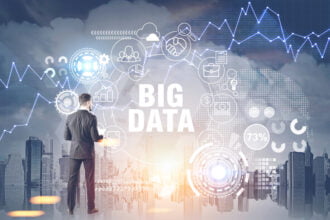Public data, the data that government makes available to the public, is at risk. Wait a minute, what about all those great Open Data initiatives you’ve heard about? Isn’t government sharing more data than ever? Well, no.
Public data, the data that government makes available to the public, is at risk. Wait a minute, what about all those great Open Data initiatives you’ve heard about? Isn’t government sharing more data than ever? Well, no.
Public data includes many types of information that governments actively collect in order to understand the people, businesses and governments themselves. Open Data is information about government activity, shared through means that are easy for programmers use in applications. So, if you are a programmer, or, if someone builds an application that you find useful, the Open Data movement makes it more convenient for you to use information about government activity. But that’s just a segment of public data, and just one pathway to use.
When you respond to the census questionnaire, you are participating in another important public data process. You may also participate in other surveys conducted by the Census Bureau, the Bureau of Labor Statistics or other government agencies. When you read news articles quoting statistics on the status of the American people or businesses, it’s likely that those statistics were developed by a government agency through active research – this is public data.
This is the final piece in our series on the threat to public data, which focuses on current political activity against the American Community Survey, an important Census Bureau survey which provides information about the American people and how they live. If you missed the rest of the series, you can catch up now:
Open Data: What’s It Hiding? by Meta Brown
Why Business Needs Public Data by Joan Naymark
Ending the American Community Survey: Privacy is Not the Issue by Virginia Carlson
Why do we need public data? Can’t we just get by with alternative information sources, commercial and other sources? No, we can’t. In many cases, commercial providers are reselling data public data in a form that is convenient or otherwise enhanced. And commercial providers do not have the same obligations or interests in serving public needs.
We need public data for these reasons:
Trust
The Census Bureau and other agencies employ expert statisticians and survey designers, and have centuries of institutional experience in research. They understand and care about transparency and consistency in data collection and analysis. They have the authority to ask questions and the obligation to maintain privacy of individuals. Their mission is to serve public interests.
Access
If private sector becomes the only source for data about the public, who will be able to obtain data and how? What information might become unavailable if collecting it is unprofitable?
Cost
Today, everyone has access to public data in a variety of ways, often at no cost, or low cost. Not only do individuals and organizations take advantage of this for their own use, but many businesses use public data as a foundation for developing enhanced information which they sell. If these individuals and businesses must turn to private sources, many will simply do without; others will pay for the first time, or pay more than before. And since governments also need data, will the government simply pay vendors rather than its own staff?
Current political threats to public data center on the American Community Survey. Can we get by without it? Only if we want to settle for knowing how many people live in the US, but pretty much nothing about them. A meaningful census is more than a headcount!
If data matters to you, if you want to see the US Government continue to provide dependable information about our people, businesses and the government itself, then you must make your views known. Tell your friends about the importance of public data, and why each and every American benefits from it. Contact your representatives and let them know that you value the American Community Survey and all public data.








